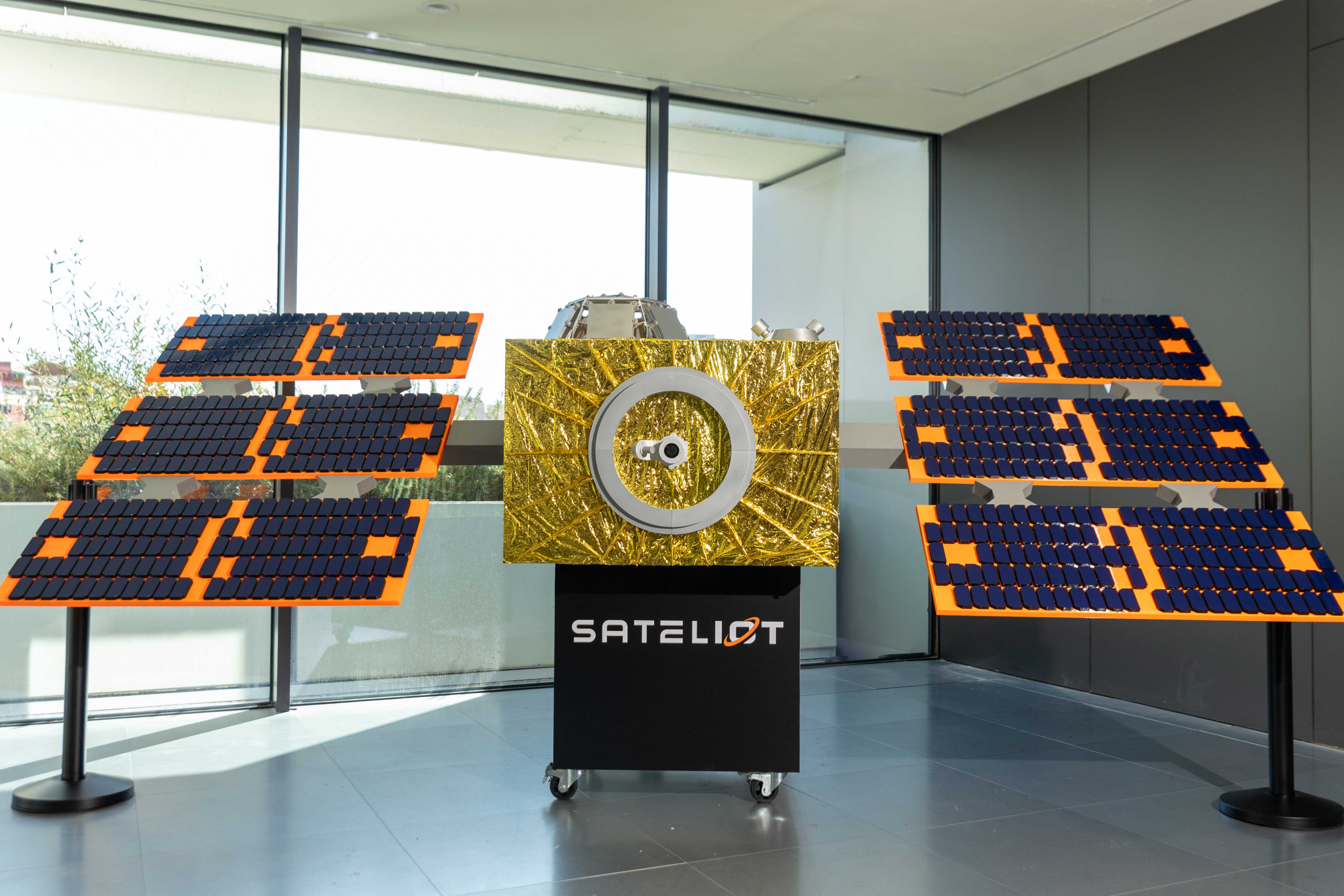TAMPA, Fla. — Spain’s Sateliot announced plans Nov. 10 to develop upgraded satellites from newly expanded facilities in Barcelona, aiming to move beyond connecting sensors and machines to provide voice, video and data links directly to smartphones.
The first 16 150-kilogram satellites are slated to launch in 2027 to demonstrate the capability in certain areas for a few minutes at a time, a spokesperson told SpaceNews, before scaling to provide real-time coverage by 2030.
Sateliot aims to first deploy five more 15-kilogram spacecraft in 2026, bolstering a connectivity service for Internet of Things (IoT) devices using global 5G standards known as 3GPP.
The startup said last month it had achieved a narrowband connection for the first time between one of its four operational low Earth orbit satellites, provided by Bulgaria’s EnduroSat, and a commercial IoT device operating under Release 17 of this standard.
“The ultimate goal is to build a global network of hundreds of satellites to deliver 5G IoT and New Radio (NR) connectivity for real time, low latency dual-use (civil and defense) applications,” the spokesperson said via email.
Sateliot has lodged plans with international regulators to deploy up to 500 satellites.
The upgraded satellites, called Tritó, would be built at the venture’s newly opened European 5G Satellite Development Center at its Barcelona headquarters, which includes a 100-square-meter clean room.
Announcing the center’s inauguration Nov. 10, Sateliot, which counts the Spanish government among its investors, said the start of its industrial phase reinforces Europe’s leadership and technological sovereignty in 5G IoT connectivity from space.
The venture also reaffirmed a goal to reach one billion euros ($1.16 billion) in annual revenue by 2030, following the start of commercial services next year, after signing recurring contracts worth 250 million euros with more than 450 customers across 50 countries.
Last week, U.S.-based direct-to-device rival AST SpaceMobile said it had registered plans for a European sovereign network in partnership with U.K.-based telecoms giant Vodafone.
